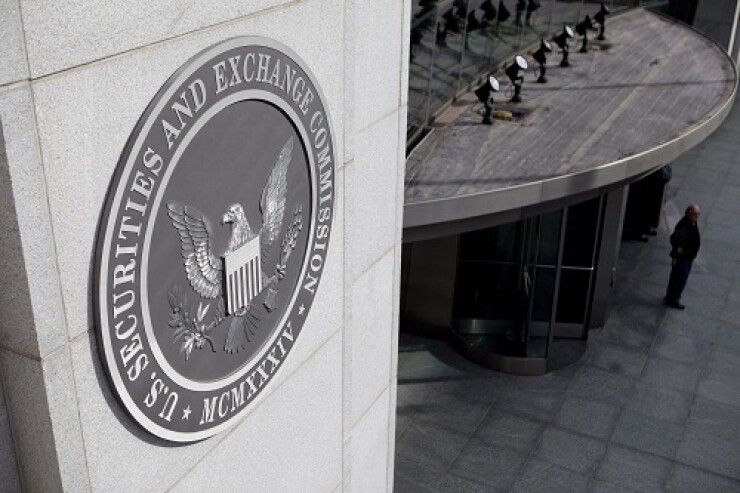A New York-based investment advisory firm is ponying up $1.4 million to settle allegations that it failed to disclose its own interest in the special purpose acquisition companies it was recommending to investors.
A special purpose acquisition company, or SPAC, is often referred to as a "blank check" company that raises money by selling stock through an initial public offering solely for the purpose of buying up privately held businesses.
RTW Investments, a New York-based registered investment advisory that specializes in investing in life science ventures, became the subject of a Securities and Exchange Commission investigation over allegations that it was not revealing that its personnel stood to profit from SPACs it was steering investors' money into. Rather than fight the charges, RTW agreed on Tuesday to settle for $1.4 million.
The SEC's allegations relate to a pair of SPACs set up by RTW Investments — Health Sciences Acquisitions Corp. and Health Sciences Acquisitions Corp. 2, which were established about a year apart in late 2018 and 2019. By setting up, or "sponsoring," the SPACs, RTW was entitled to receive roughly a quarter of the proceeds resulting from its raising money through an IPO to acquire a private company.
RTW divided that ability to collect those proceeds into shares, of which roughly 40% went to RTW personnel and the rest to personnel affiliated with three related funds: RTW Innovation Master Fund, RTW Master Fund and RTW Venture Fund.
Read:
"Accordingly, RTW personnel had material conflicts of interest that could affect the advisory relationship between RTW and its advisory clients, and could cause RTW to render advice that was not disinterested,"
The SEC alleged that RTW personnel used money from private fund advisory clients to complete SPAC transactions that ultimately benefited them financially. By not revealing their incentive to complete the SPAC deals, they ran afoul of provisions in the Securities Exchange Act of 1934 and the Investment Advisers Act of 1940, the SEC alleged.
The SEC did not identify either the advisory clients or the specific SPAC deals involved in the allegations. Attempts to reach RTW Investments were unsuccessful. Both of RTW's SPACs have taken part in large acquisitions in recent years.
Health Sciences Acquisitions Corp., for instance,
Michael Edmiston, a securities lawyer at Jonathan W. Evans & Associates in Studio City, California, and past president of the Public Investors Advocate Bar Association, said the case is just the latest highlighting the dangers of SPACs. Although the alleged victims in the RTW investigation were private funds rather than retail investors, the SEC's allegations show the risks that come with any murky investment vehicle.
"These really are a black box for investors," Edmiston said. "When you have an advisory firm that's got its own money in a SPAC, they are going to go out and encourage deals regardless of whether it's in their clients' best interests."
Besides not disclosing conflicts of interest, the SEC alleged RTW Investments failed to meet a deadline for filing a regulatory report that would have disclosed its personnel's ownership of public companies formed through SPAC transactions.






